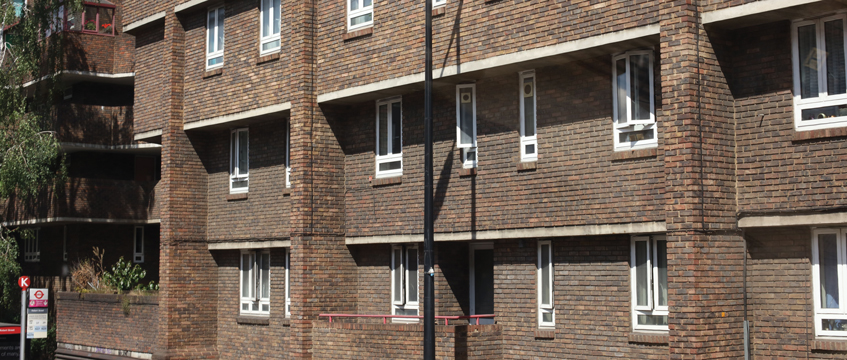The Leasehold and Freehold Reform Bill has had its second reading in the House of Commons and is now in the committee stage, where a detailed examination of the Bill is taking place.
The draft Bill includes far-reaching proposals to amend how residential lease extensions and enfranchisements (freehold) applications are dealt with. Overall, if the proposals become law, there will be a significant shift in favour of leaseholders.
Potential breaches
The terms of reference given by the government to the Law Commission were to provide advice on making the enfranchisement process easier, quicker and cheaper.
They included “examine the options to reduce the premium (price) payable by existing and future leaseholders to enfranchise, whilst ensuring sufficient compensation is paid to landlords to reflect their legitimate property interests.”
This was to ensure the legislation is compatible with the European Convention on Human Rights under Article 1 of Protocol 1 (the protection of property), as a reduction in premiums that is not compatible with human rights law would be liable to be struck down. This applies to individuals and companies alike.
However, as the proposals go further than anticipated, there has been a move away from adhering to the convention, as demonstrated by the secretary of state Michael Gove, who has stated that if landlords mount a human rights challenge, they will withdraw from the legislation. This would involve the drafting of a replacement Act, with six months’ notice to leave the Council of Europe, which influences the protection of human rights internationally, weakening the UK’s voice on those issues.
In 2019, Catherine Callaghan KC, instructed by the Law Commission to provide an independent opinion on the compatibility of the various options for reform with the ECHR, reported the following findings. Those referenced here are included in the draft Bill, although the final detail of the Bill is to be decided.
1. Some of the valuation variables for calculating the premium payable may be set by the government. Prescription of the variables at the market rate is likely to be compatible with A1P1, with the risk of a successful A1P1 challenge to this aspect of the scheme being medium low to low.
The further away from a market rate that is prescribed, the higher the risk of a finding that the scheme does not strike a fair balance and imposes a disproportionate burden on landlords.
2. The proposal to cap the ground rent at 0.1% of the property’s value represents a fair balance between the landlord’s contractual entitlement to receive some income and the rights of leaseholders and is likely to be compatible with A1P1. The risk of a successful challenge to such a cap is likely to be medium low.
This would become a medium high risk if the price originally paid for the leasehold property reflected the rent payable. This element may be affected by the outcome of the ongoing ground rent consultation, which goes further by proposing that no compensation is payable to freeholders for altering the ground rents they receive, which has not been proposed before.
3. The proposal to abolish marriage value (which is only applicable for leases with less than 80 years unexpired and can be a significant element when calculating the premium payable) produces the greatest reduction in premiums for leaseholders, with the risk of challenge being slightly less than a 50% chance.
If the removal of marriage value alone accounts for almost a 50% chance of breaching human rights legislation, when the reduction of ground rent and prescription of rates is layered on, this gives the freeholders a much greater chance of proving their human rights have been breached. They then would have grounds to successfully challenge the legislation.
Genuine concerns
Additional support and protection to those leaseholders suffering from onerous ground rents are required. But if premiums payable to landlords are significantly reduced, this amounts to an expropriation of assets and would be open to legal challenges, undermining the UK’s reputation as a place to invest.
This clash between legislative intervention and contractual freedom of contract is generally avoided, as those freedoms are a fundamental pillar of our legal system.
Although many will take the view that freeholders can afford to suffer a loss in income and for their assets to be devalued, it is not only large corporations that will be hit financially, but also individual investors, pension funds, local authorities, real estate investment trusts, and those leaseholders who have participated in collective enfranchisement (freehold) claims on blocks of flats, by acquiring superior interests over non-participating flats, without which they could not have acquired their buildings.
Under the proposals, it is almost certainly going to result in professional landlords, who have the resources to make buildings safe, leaving the leasehold sector, whereas most leaseholder-owned freeholds do not have the necessary expertise and funds readily available. Despite general opinion, not all landlords are irresponsible, indifferent or exploitative.
The government has indicated that it wants to bring in this legislation before the next election. It remains to be seen what the timing is on delivery, which amendments make it into law and therefore if a challenge under human rights law is raised.
Charlie Coombs is a partner at Gerald Eve
Image © Richard Gardner/Shutterstock
Follow Estates Gazette








